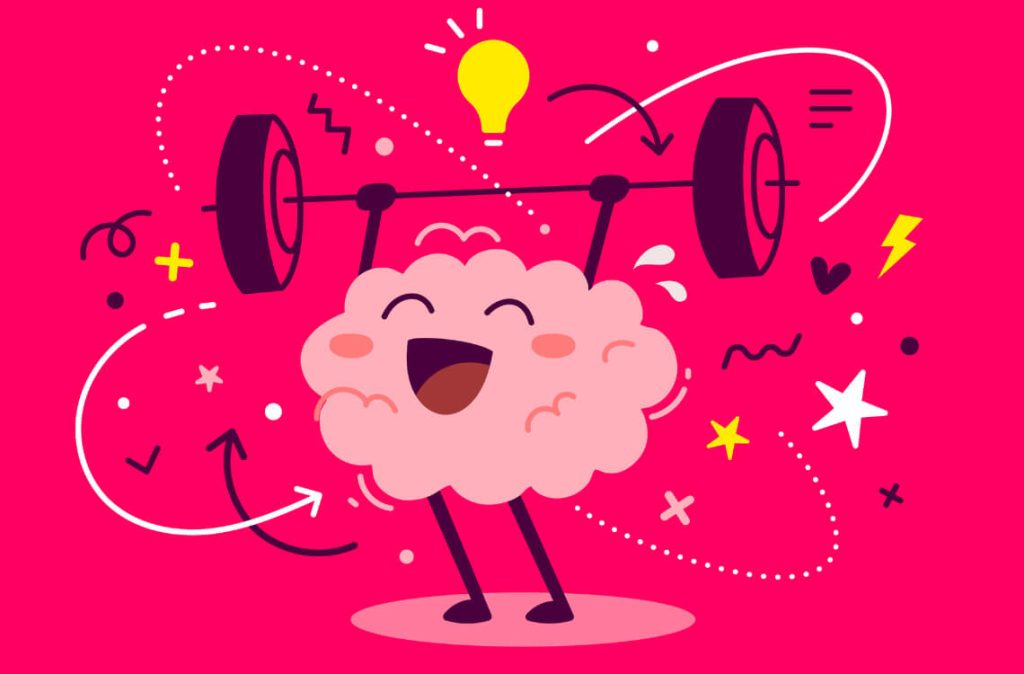The brain is the most complex biological structure in the known universe, and scientists are still discovering more and more amazing things about its capability. Weighing in at an average of 1.3kg, this fatty mass serves as a source of intelligence, interpreter of senses, and command centre for the entire body and its respective functions. The brain interprets every single thing that happens around us and instructs the body to react accordingly.
Except for the muscle tissue in the middle layer of the arteries that provide blood to the brain, the brain is an organ without any true muscle. So contrary to popular belief, the brain is not a muscle – however, you still need to exercise it in order to keep it healthy. The number of cases of neurological disease is expected to rise in the next 10 years, making this the second leading cause of morbidity and mortality after heart disease in Malaysia.[1] This includes stroke, Alzheimer’s Disease, Parkinson’s Disease, brain tumours, cerebral aneurysms, epilepsy, and even headaches or migraines.
Dr. Rajendra Rao, Consultant Neurosurgeon at Aurelius Hospital Nilai, said “Your brain’s health should not be taken lightly. Keeping your brain active and sharp is only one part of the puzzle, you also need to consider how your daily habits have an effect on your brain. For example, chronic stress can shrink your prefrontal cortex, affecting your memory and ability to learn, while sleep deprivation can overstimulate parts of the brain and even lead to cognitive impairments. This is why it is so important to protect and maintain your brain’s health. Ultimately, the goal is to create a brain span that matches your life span.”
Let’s look at some interesting facts about the human brain:
- Your brain gets hungry and needs food
While the human brain is not a very large organ, it requires a lot of energy to function. Your brain needs a constant supply of fuel and this comes from the food that you eat. What you eat will directly affect the way your brain functions and can even affect your mood, so make sure to maintain a healthy diet in order to keep your brain at its best.
- Think of your brain as unlimited cloud storage for life
Your brain has a limitless storage capacity. Research shows that the human brain consists of about 86 billion neurons, and each neuron forms connections to other neurons, which could add up to 1 quadrillion connections.[2] Over time, these neurons can combine, increasing storage capacity.
- You only use 10% of your brain… WRONG!
This is a common myth that simply isn’t true – neurologists agree that the brain is constantly active, rapidly firing millions of neurons in the brain, even while you are asleep. Imaging techniques allow doctors and scientists to map brain activity in real-time. The data clearly shows that large areas of the brain—far more than 10%—are used for all sorts of activity, from seemingly simple tasks to more complex ones.[3] Scientists have yet to find an area of the brain that doesn’t do anything.
- Your brain consists of mostly water and fat
This might not sound too impressive for such an important organ, but the brain actually consists of about 75% water and is the fattiest organ in the body, consisting of a minimum of 60% fat.[4]
- Faster than a Formula 1 car
Brain information travels up to an impressive 360 km per hour, which is the same speed as Formula 1 cars! When a neuron is stimulated, it generates an electrical impulse that travels from cell to cell. These signals in your neurons, called action potentials, enable neurons to communicate with each other.[5]
Dr. Rajendra adds, “Your lifestyle choices have a significant impact on your brain health. Unlike aging and genetics, you can control your lifestyle – be sure to eat well, exercise regularly, manage your stress levels, and get sufficient sleep to ensure your brain’s optimum performance and lower your risk of brain disease. Additionally, watch out for signs that indicate your neurological functions have been impacted, such as impairment of decision-making, thinking, and memory. If you find that you’re experiencing any of these symptoms, as well as sudden headaches or unexplained pain in your neck or back, do not hesitate to visit a neurologist and get a full check-up.”
If you’d like to learn more about your brain health, make an appointment with Dr. Rajendra Rao at Aurelius Hospital Nilai here: https://www.aureliushealth.com/nilai/.
[1] The Southeast Asian Journal of Tropical Medicine and Public Health, https://www.researchgate.net/publication/6677360_National_response_to_neurological_diseases_in_Malaysia_Planning_for_the_future
[2] National Library of Medicine, https://pubmed.ncbi.nlm.nih.gov/19226510/
[3] Encyclopedia Brittanica, https://www.britannica.com/story/do-we-really-use-only-10-percent-of-our-brain
[4] Rehabilitation Info Portal, http://www.rehabchicago.org/the-human-brain/#:~:text=The%20brain%20is%20composted%20of,be%20about%20100%2C000%20miles%20long.
[5] Queensland Brain Institute, https://qbi.uq.edu.au/10-amazing-facts-about-brain
Source: Dr. Rajendra Rao, Consultant Neurosurgeon at Aurelius Hospital Nilai
Disclaimer: The information provided in this article is for informational purposes only and should not be considered as medical advice from Motherhood. For any health-related concerns, it is advisable to consult with a qualified healthcare professional or medical practitioner.
For more insightful stories and fun recipes, stay tuned to Motherhood Story!
